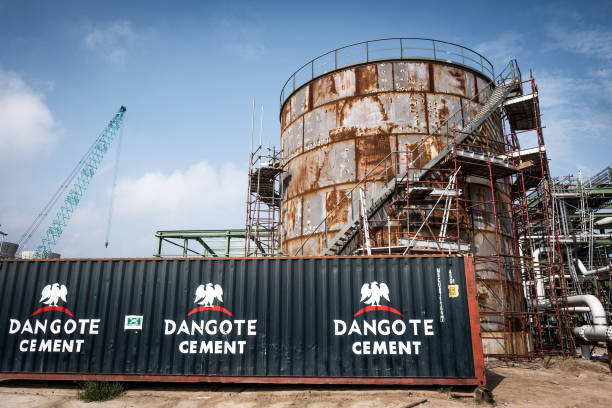Cryptocurrency adoption in Africa has been increasing with the continent housing some countries that made the top 5 list of countries with highest crypto adoption in the world.
According to a Chainalysis report, Sub-Saharan Africa saw modest growth, receiving an estimated $125 billion in on-chain value between July 2023 and June 2024.
This represents a $7.5 billion increase compared to last year.
In terms of the crypto industry sector, it is most prevalent in Africa. Chainalysis revealed that Sub-Saharan Africa is the second highest adopter of Decentralized Finance (DEFI) services in the world.
In terms of volume of crypto adoption, Nigeria the most populated country in Africa made it to the list of the top ten countries with the highest crypto adoption in the world.
These statistics reveal Africa’s increasing role in the global cryptocurrency space and the potential that lies within the country for crypto investors and founders.
Despite Africa’s growing cryptocurrency status, the industry in the continent is still marred by poor regulatory frameworks and unsupportive government authorities.
Cryptocurrency is banned in a handful of African countries with the rest having little to no regulatory framework serving as guardrails for the industry.
In this Nairametrics article, we will be looking at African countries that have legalized cryptocurrency in their Jurisdictions.
We will also be looking at the status of cryptocurrency in Nigeria as it stands today
Mauritius
Mauritius, a country located in East Africa is one of the African countries with a legal status for cryptocurrency. Mauritius has one of the most progressive laws in Africa in terms of crypto regulation resulting in a healthy adoption of the technology.
- As of 2022, Mauritius ranked 131st out of 157 countries adopting crypto. The country houses over 23,208 crypto owners. This might seem low compared to the country’s population of 1.3 million but the number is expected to grow in the coming years given that the country is one of the few nations with crypto licenses in Africa.
- According to a Forbes report, Mauritius released the first crypto license framework in Africa, the Virtual Asset and Initial Token Offering Services Act (VAITOS Act) in 2021.
The Act offered laws that provided guidelines for international compliance while mitigating and averting money-laundering risks connected with cryptocurrencies.
South Africa
Cryptocurrency is legalized in South Africa Africa’s largest economy. The Legal status of crypto in the country and the stellar regulation it enjoys have enabled the build-up of a vibrant community of crypto enthusiasts, investors, and Entrepreneurs.
- The banking sector in South Africa has also embraced cryptocurrencies leveraging the technology to improve operations and upgrade its service to customers.
- According to a Forbes report, a collaboration between the Financial Sector Conduct Authority (FSCA) and the SARB took place in 2021 and 2022.
- The duo drafted a consultation paper outlining a regulatory framework for the industry.
Under the framework, Cryptocurrency service providers would be required to register with the Financial Intelligence Centre (FIC) and comply with anti-money laundering and counter-terrorist financing (AML and CTF) regulations.
In South Africa, people and businesses are free to use cryptocurrencies in their daily transactions following the legal status in the country.
Central African Republic
Cryptocurrency is legalized in the Central African Republic and the country adopted bitcoin as its official currency alongside the CFA franc.
- According to an August 13 report by the African News, The president of the country announced the legalization of the use of cryptocurrencies.
- The National Assembly voted unanimously and considered the law governing cryptocurrency in the Central African Republic. President Faustin Archange Touadéra promulgated the move by the National Assembly.
The CAR became the first African country to have adopted Bitcoin as a legal tender.
Is crypto legal in Nigeria?
Nigeria is the second country in the world with the highest crypto adoption yet the legal status of the technology in the country is pretty unclear.
- The Central Bank of Nigeria (CBN) initially prohibited banks and financial institutions from facilitating cryptocurrency transactions in 2021.
- Despite this policy, Nigerians still buy, sell, and trade cryptocurrencies on peer-to-peer (P2P) platforms, which have become more popular due to the restrictions on bank transactions.
- The CBN’s directive restricts the involvement of banks in cryptocurrency transactions. However, there is no law that explicitly bans individuals from owning or using digital currencies. Many Nigerians use crypto for remittances, investment, and trade.
- The Nigerian government has shown interest in developing a regulatory framework for cryptocurrencies.
- On August 29, 2024, the Nigerian Securities and Exchange Commission (SEC) granted Approval in Principle (AIP) to Quidax and Busha.
This makes them the first crypto exchanges in Nigeria to be legally recognized as crypto trading platforms. This is a positive move and indicates a promising future for the industry in the country.
In conclusion, while there is no outright ban on cryptocurrency in Nigeria, its use is heavily regulated, and the government’s stance could evolve as it works to balance the growing crypto market with concerns about financial stability, fraud, and crime.





















